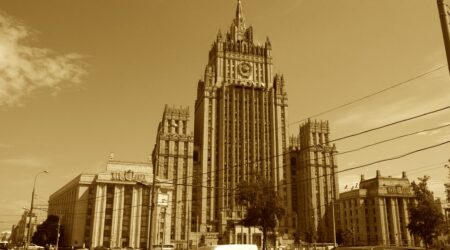How can leading-edge data analysis methods help policymakers make better decisions when addressing climate change? What are the key differences between the experiences of Filipino immigrants in France and the United States? How can diversified farming systems help rural communities become more resilient to climate variability, natural disasters, or economic crises?
These are among the many important questions that will be considered by a group of Social Science Matrix Research Teams slated to launch in Fall 2016. Matrix Research Teams are groups of scholars who gather regularly to explore or develop a novel question of significance in the social sciences. Selected by a cross-disciplinary panel of UC Berkeley faculty members (based on written proposals), Matrix teams include participants from multiple social-science disciplines and diverse ranks (i.e. faculty and graduate students). They focus on a compelling research question with real-world significance, and typically deploy or develop appropriate methodologies in creative ways. In addition to a stipend, Matrix teams receive support in coordinating and scheduling meetings, administering funding, and more.
Matrix supports three kinds of research teams: prospecting teams, which run for a single semester and explore a new area or question of inquiry; project teams, which run for two semesters, meeting at least once a month around a defined research problem; and theme teams, whose work directly relates to the current Matrix theme, “Questioning the Evidence,” focused on exploring the changing concepts, practices, and norms related to the collection, deployment, and analysis of data and evidence in the social sciences—and in society at large.
“This cohort of research teams exemplify our mission to advance ‘social science for Berkeley and beyond’,” says Lynsay Skiba, Associate Director of Programs for Social Science Matrix. “They aim to strengthen social science research and instruction on campus, and to apply social science research to inform critical problems facing the world today.”
Below are summaries of this fall’s Matrix teams.
Examining the Global Reach of Algorithms
Organized by by researchers affiliated with the Center for Science, Technology, Medicine & Society, this Matrix team will convene social scientists, computer scientists, and humanities scholars to explore the expanded use and presence of algorithms in politics, media, and society at large. The team intends to organize a conference on algorithms in culture, produce a special issue of a journal on algorithms, and initiate a year-long colloquium series that they hope will culminate in an edited book focusing on the multiple histories of algorithms around the world, particularly as understood through mathematics.
Climate Policy: From Models to Data
Integrated assessment models are routinely used by the Environmental Protection Agency and other government bodies to inform climate policies like the clean power plant rule. Yet these models were developed and constructed before the recent empirical, data-driven econometric estimates entered the research scene. This Matrix research team—led by David Anthoff, Max Auffhammer, and Solomon Hsiang, who together previously led the Matrix Climate Change Economics Roundtable—will explore how new data-driven evidence can better be incorporated into the policy process.
Migration, Racialization, and Gender: Filipino Migration to France and the United States
This Matrix prospecting team will compare issues of contemporary migration and the racialization of migrants to France and the United States, through a comparative transnational study of Filipino migration in both countries. Researchers on the team will bring perspectives from the fields of law, ethnic studies, Southeast Asian studies, sociology, Asian-American studies, and other relevant domains. The group will engage representatives from outside organizations, such as Oakland-based Filipino Advocates for Justice, and they intend to organize a one-day symposium on “Philippine Diasporas: Race, Gender, and Intimacy.”
Questioning the Evidence on the Integration of Immigrants in Europe
Diverse data sets are employed to support different narratives about the integration or non-integration of European populations, including data related to educational and professional outcomes, marriage and domestic life, participation in civil society, religious observance, criminal or terrorist behavior, and national allegiance. This Matrix theme team will explore how the integration of various immigrant populations and their descendants in Europe has been depicted in recent decades. Throughout the year, they will consider how data about immigrants and integration appears in the media and other spaces; how data is collected and used to tell these stories; and to what ends.
Coordinated Learning around Geospatial Information, Analysis, and Technologies
The rise of geospatial technologies has transformed the idea of “place” in social science research, and multiple units and programs at UC Berkeley provide instruction in approaches and technologies for working with geospatial data. This Matrix research team will reach out across the Berkeley campus to investigate opportunities and mechanisms for collaborating and coordinating course content and format around geospatial data, analysis, and technology instruction. The team will bring together participants from myriad programs to identify strengths, weaknesses, opportunities and challenges, and will make recommendations for more effective coordination and other program improvements.
Political Economy and Society Curriculum Working Group
With approximately 450 students per year, Political Economy is the largest of the interdisciplinary majors within UC Berkeley’s International and Area Studies Teaching Program (IASTP). This Matrix prospecting team will bring together faculty and graduate students from a range of departments and professional schools to address the intellectual and pedagogical challenges of moving this major forward, particularly as students increasingly aspire to study related subjects, including inequality, poverty, new technologies, and the relationship between national wealth and economic development. After conducting an analysis of Political Economy curricula at UC Berkeley and peer institutions, the team will draft recommendations for improvements to the existing major and related programs.
Rethinking Identity and Linguistic Diversity in an Age of Immigration
This Matrix team will explore how the process of immigration enables or constrains the transformation and preservation of language and identity. Drawing primarily from scholarship in linguistics and anthropology, the researchers will examine the concept of “translanguaging,” typically understood as a transsemiotic system that mediates the interplay between language practices and identity formation in superdiverse contexts. More broadly, the team will explore the process of identity in migration and translation as an analytic method ubiquitous to social life and everyday practices between people from various linguistic and cultural backgrounds. These discussions will not only be fruitful for academics studying immigration, language, and identity, but may also be of benefit for educators and policymakers.
Network on Adolescent Well-being and Development (NAWD)
UC Berkeley has potential to transform research and interventions in adolescent health, and to serve as an international leader in an interdisciplinary re-shaping of the field. Drawing upon expertise from researchers in multiple domains—including psychology, medicine, economics, neuroscience, social welfare, sociology, public health, education, policy, and information science—this Matrix project team, tentatively called the “Network for Adolescent Wellbeing and Development” (NAWD), aspires to develop innovative approaches for research into key issues related to adolescent health, including technology and adolescent well-being, violence prevention, methodological innovations (e.g., participatory research, new approaches to causal inference in epidemiological and policy research), and reproductive health.
Resilience and Transcommunity Knowledge-Sharing in Agroecosystems at the Base of the Himalaya
Evidence suggests that diversified agroecosystems and agricultural practices are more resilient to economic and climate variability and change as compared to monocrop systems that rely heavily on external inputs and market demand. Drawing upon field research conducted in Nepal, a hotspot for natural disasters where more than 80% of the rural population is dependent on agriculture and home-produced food, this Matrix research team will assess agro-ecological resilience by examining vulnerabilities in socio-ecological systems and, in partnership with local communities and non-governmental groups, will identify actions that can be taken to create a more sustainable future for people and the land.
The Future of the Humanities and Humanistic Social Sciences PhD at Berkeley
Humanities and humanistic social sciences PhD training has strained to keep pace with accelerating changes in the technologies and professional cultures of employment, both within and beyond academia. This Matrix project team aims to examine the current professional relevance of liberal arts doctoral preparation at Berkeley. Enlisting current graduate students, as well as professionals from non-academic institutions, this team will identify potential reforms of humanities and humanistic social sciences graduate apprenticeship at UC Berkeley, and find new ways to position graduates to become successful in their chosen professional fields.
Assembling Critical Theory and Practices in Design and the Social Sciences
Design shapes our daily lives through the technologies, infrastructures, and artifacts around us. The processes and implications of design should thus be of central interest to social scientists, particularly as a subset of people working within design draw upon (and add to) traditions of inquiry similar to those in the social sciences. Building on social scientific interest in art, media, and technology, this Matrix team—composed of interdisciplinary scholars within information management and systems, science and technology studies, new media, and design research—will examine emerging trends in design research and practice, and trace connections between this work and social science traditions.
Stay tuned to the Matrix website for more information about these research teams in the coming months. And be sure to sign up for our newsletter to receive updates and announcements on upcoming events, as well as opportunities to apply to initiate other Matrix teams in the future.



